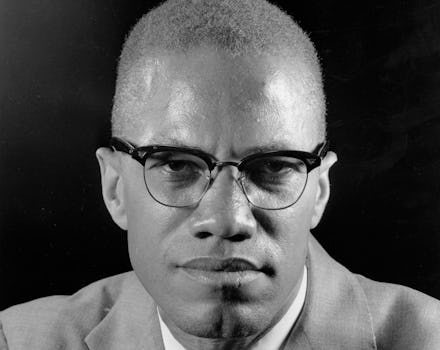Half a Century Later, Malcolm X's Words on Police Brutality Are Just as Relevant as Ever

Tuesday would have been the 90th birthday of Malcolm X, the civil rights leader whose impassioned, fiery rhetoric deconstructing white supremacy — a topic on which he shifted approaches throughout his life — made him one of the most polarizing figures of his era.
But one thing that makes the man born Malcolm Little so relevant today is how little the structures he combated have changed. In light of the recent police killings of unarmed black boys and men — like Michael Brown of Ferguson, Missouri, and Walter Scott of North Charleston, South Carolina — one speech in particular proves the relationship between black Americans and law enforcement now hinges on a dynamic eerily similar to that of the 1960s.
Here's what he had to say:
The United States is in the midst of perhaps its deepest, most galvanizing interrogation of racism and police violence since the early 1990s, when the beating of black motorist Rodney King in Los Angeles ignited five days of rioting in the city.
In the trial that acquitted the officers responsible for that beating, the defense was able to convince jurors that King, whose body lay prone on the roadside for almost the entire incident, posed a threat and was even in "total control" of the situation, according to Judith Butler, whose academic essay "Endangered/Endangering: Schematic Racism and White Paranoia" examines the case.
Today, many instances of similar violence — including those incidents ending in death — follow the same pattern. The heavily racialized language Ferguson, Missouri, Officer Darren Wilson used to defend his shooting of unarmed Brown in August relies on similarly stereotypical notions of the inherent violent threat posed by black people. And it worked just as well — Wilson's case wasn't even taken to trial.
As Malcolm's words suggest, this is not much different from how things were in the mid-20th century. That the dynamic remains constant more than half a century later is why Malcolm's words are as important today as they were then.